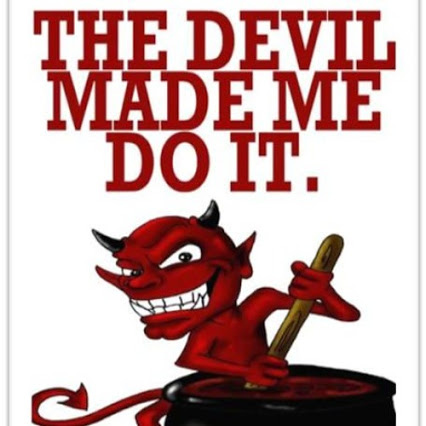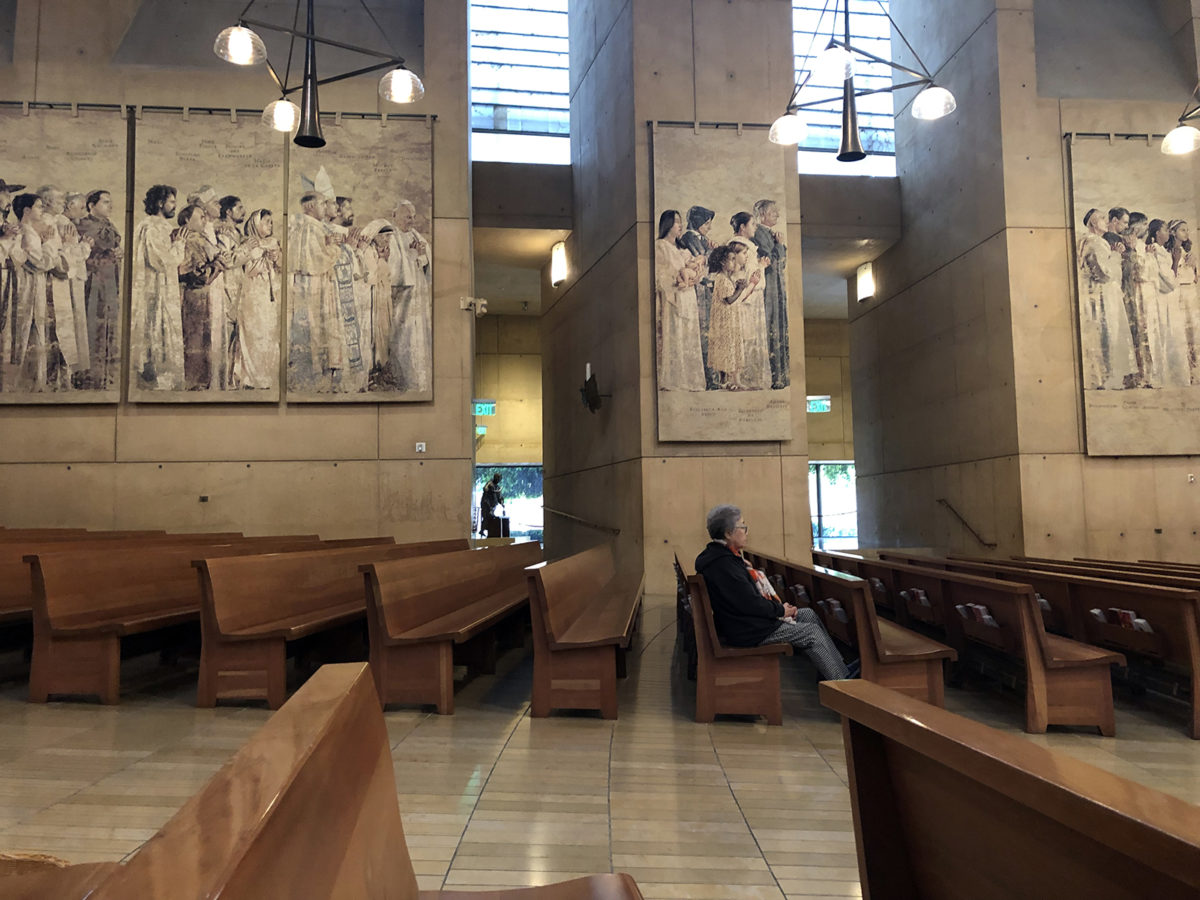
"The Devil made me do it!"
Remember that gem from the nineteen seventies? I can't remember the product but Madison Avenue advertisers, cashing in on Flip Wilson's popular catch phrase, hit a home run with that one.
Funny thing, though, is that we're still blaming the Devil for whatever evil thing we've done which we think couldn't possibly come from ourselves, unless we were provoked, encouraged, driven, lied to, by the Devil himself.
After all, we pray to St. Michael after each Mass (and sometimes in between Masses): "...and do thou, O Prince of the heavenly host, by the power of God, cast into hell Satan and all the evil spirits who prowl throughout the world seeking the ruin of souls. Amen."
So, we acknowledge the dangerous role that the Devil plays in our lives and, of course, we wish to be spared of his influence by letting St. Michael fight our battles. But just in case he's busy fighting someone else's battle, we can always claim that it wasn't my fault (that I sinned). It was Adam's fault for creating Original Sin; it was the Devil's corrupting influence in my life (because my soul is so pure-white and my goodness is such a threat to the Evil one?); it was my drinking, etc. There are infinite scapegoats for our inability to do good.
So we go on sinning and blaming/giving credit to the Devil. Meanwhile, Jesus - the Logos of the universe - became incarnate precisely to be the scapegoat that we need in order to be spiritually cleansed. But we don't in humility turn to Jesus. Instead, we lay praise/blame on the Devil, who, I would think, is more than happy to take credit for our most recent downfall. Why not? He's got big shoulders, and if we can lay the blame of our own sinfulness on him, he'll gladly take it, especially if it stops us from going to Jesus with a contrite heart and begging for His forgiveness. And notice that this way, too, we don't actually have to acknowledge the real reason for our own sinfulness: The Devil made me do it! Not me! I'm fundamentally, essentially, ontollogically, a good person. If I do bad things, those actions/thoughts/words/omissions surely don't come from me. How could it be me? I've been baptized. I have the Holy Spirit dwelling in me. I'm good. Heck, I even believe in God. I'm practically saved as it is by just waking up in the morning! No, if I do bad things, it has to be due to the almighty powerful Devil's influence.
And the Devil, who doesn't have to life a finger to further corrupt us and draw us away from God, sits back and laughs at our downfall.
* * *
PS: After reading this blog, my wife exclaimed, "The Devil never makes you do anything."
Touche, dear.







